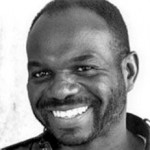Nominated for six Golden Globes, including Best Drama Motion Picture, Moonlight is also considered a front-runner for this year’s Oscars. The story follows a young Black man through three phases of his life—from his childhood in a dysfunctional home in Miami during the crack epidemic of the ’80s and ’90s to adulthood—and also deals with his sexuality. Although the movie is not about HIV, as The New York Times reports, the virus has touched the two men who created this film.
Tarell Alvin McCraney, a playwright, wrote the screenplay back in 2003, originally titled In Moonlight Black Boys Look Blue. It remained untouched for nearly a decade, during which time he attended Yale University School of Drama and won a MacArthur Fellowship.
In 2011, according to the Times profile, a friend of McCraney emailed the script to Barry Jenkins, a filmmaker. Jenkins related to the script in very personal ways. It turns out both men were raised in the same impoverished, crack-infested neighborhood of Miami, called Liberty City, but the two men didn’t know each other until they were adults in their mid-30s, when they recently teamed up to make Moonlight. (Jenkins, who reworked the script, is nominated for a Golden Globe in the categories Best Director of a Motion Picture and Best Screenplay of a Motion Picture.)
Although McCraney identifies as gay and Jenkins does not, the two shared surprisingly parallel experiences. As the Times writes:
Both men were born to mothers who had their first children when they were teenagers. Both saw their mothers become H.I.V. positive after falling victim to the crack epidemic that overtook their community. Both were taken away from their mothers and bounced around; caregivers, related and not, took them in. They both knew what it was like to have the water turned off for lack of payment, to go to school without deodorant because there was no money to buy it.
Yet their family members, including their mothers, pushed school and a love of reading; their neighbors and educators fought for them and encouraged their talents. The Liberty City of their childhood was at once a place that buckled under the rages of crack but also, defiantly, maintained a cultural richness and sense of community that nurtured and inspired the two men—it was a place that both contained and freed them. And it is the way that Moonlight captures that tension—between the beauty and the struggle—that makes the film so powerful.
Read the Times profile for more details on these men’s lives. In related news, McCraney participated in a World AIDS Day panel discussion, “Our Role in the Fight: The Entertainment Industry and HIV/AIDS.” You can watch that video here.







Comments
Comments